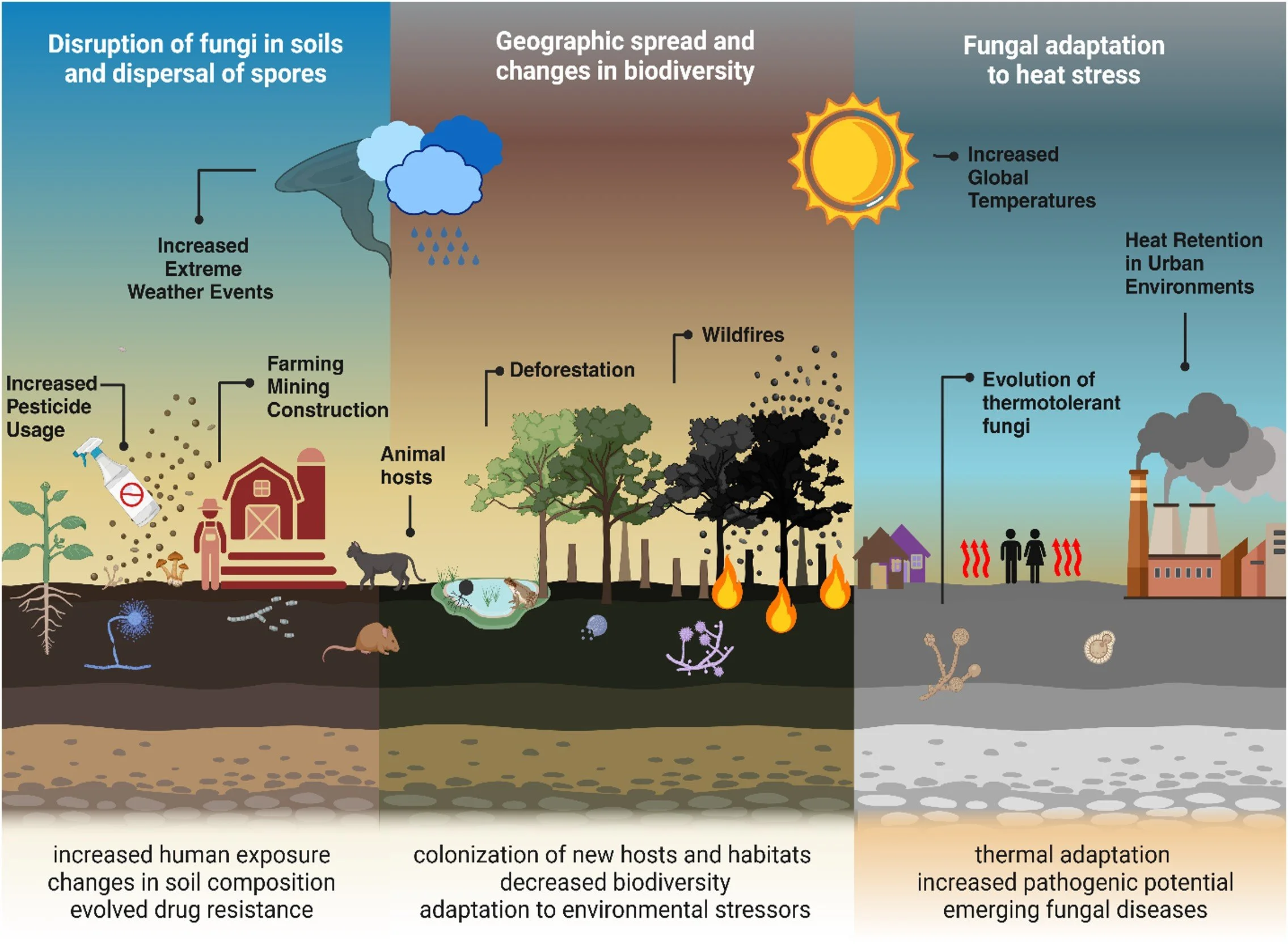
OUR RESEARCH
How do fungi evolve to cause disease and resist drug treatment?
Cryptococcus neoformans:
A critical human fungal pathogen
Causes life-threatening disease in the lungs and brain with high mortality
We study how this fungus overcomes our body’s defenses to cause disease and develop drug resistance
Heat Stress Increases Drug Resistance
Our lab found that heat stress at body temperature increases mutations in disease-causing fungi Cryptococcus deneoformans (Cd) and Cryptococcus neoformans (Cn)
Movements by transposable elements (TEs) or ‘jumping genes’ increase drug resistance and likely speed other fungal adaptations.
Heat-mobile TEs in Cryptococcus species
Created in https://BioRender.com
We are developing reporter tools to understand which stressors encountered in the environment and during infection stimulate TE movements
Created in https://BioRender.com
Heat Adaptation
Rising temperatures and extreme weather (wildfires) are adapting fungi to grow at higher temperatures, including our body temperature, which serves to protect us from most fungal infections
We study how fungi adapt to heat stress in their environment to answer whether heat adaptation increases their ability to cause disease
Created in https://BioRender.com
Environmental impacts on Fungi
Severe weather events (storms, wildfires, flooding) are spreading fungi to new environments and increasing our exposure to fungal spores in the air
New fungal diseases are emerging
Fungi are adapting in ways that may increase disease
Drug-resistance is a growing threat to our ability to fight fungal infections
From: Climate Change Impacts on Environmental Fungi: Human Health and Fungal Disease.
Created in https://BioRender.com
Assessing fungal health risks in the wake of Hurricane Helene
Fungi thrive following flooding events, which are increasingly common
We are studying the health risks associated with resulting mold growth and spores in flooded facilities







